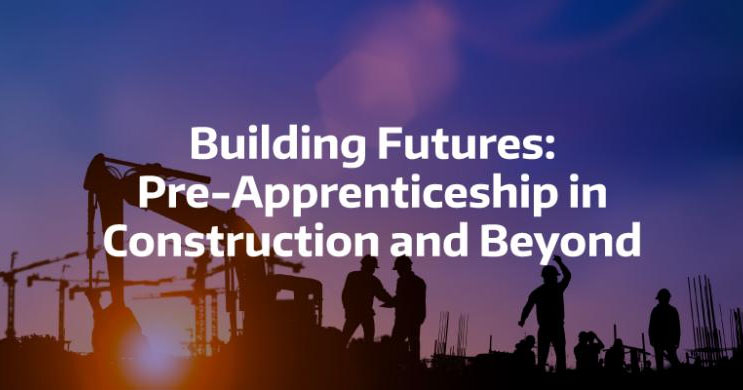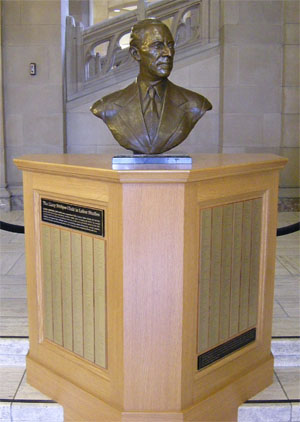LOCAL
Report: Pre-apprenticeships create equitable career pathways
But more financial support is needed for pre-apprentices and their programs
SEATTLE (April 3, 2024) — Pre-apprenticeship programs help people gain the knowledge, physical fitness, and technical skills needed to apply and be accepted into registered apprenticeship programs, where they can “earn while they learn” a trade with family-supporting wages and benefits. A new report from the University of Washington Harry Bridges Center finds that these programs help create more equitable careers pathways for those who experience racism, sexism and homophobia, but more collaboration — and financial support — is needed to promote and expand pre-apprenticeship opportunities.

The report, “Building Futures: Pre-Apprenticeship in Construction and Beyond,” explores the role of pre-apprenticeship in creating more equitable pathways for underrepresented workers in the construction industry – specifically workers who identify as Black, Indigenous, people of color, women, and gender non-conforming. Its research includes employment data for Washington state and its construction industry, information and data related to underrepresented workers’ experiences, and survey findings from 12 pre-apprenticeship organizations and 30 pre-apprentices in the Puget Sound region.
The report’s key finding:
-
Pre-apprenticeship in construction can reduce employment disparities, including those perpetuated by racism, sexism, and homophobia.
-
The initial survey underscores the critical need for additional financial support for pre-apprenticeship organizations and pre-apprentices. This support is crucial to further provide services to recruit and retain pre-apprentices in the construction industry during and after their programs.
-
The Regional Pre-Apprenticeship Collaboration (RPAC) and other entities bringing together stakeholders in the construction industry, including workers and worker representatives, play an essential role in expanding pre-apprenticeship’s reach.
Pre-apprenticeships can serve as a pathway to a high-paying career for workers by further increasing equitable outcomes for underrepresented groups. As we prioritize a more diverse, equitable, and inclusive workforce in the construction industry, thoughtful and targeted support for pre-apprenticeship programs at the local, state, and federal levels is necessary to ensure a system where careers in construction trades are accessible for all.
This project was developed with the Regional Pre-Apprenticeship Collaboration (RPAC) Retention Subcommittee, led by Subcommittee Chair, Stella Wayman, and Dr. Dan Jacoby, former Harry Bridges Endowed Chair in Labor Studies and Professor Emeritus, UW Bothell.
The full report is available for viewing and downloading at the Harry Bridges Center’s website.
 The Harry Bridges Endowed Chair in Labor Studies was established in 1992, in memory of the legendary founding president of the International Longshore and Warehouse Union. It was funded by a grassroots effort of one thousand union members giving $1,000 each, and thus creating the only endowed chair in the United States to honor a labor leader. The chair is held in two-year terms by professors in alternating departments, and to date has been held by nine professors between the three University of Washington campuses in Seattle, Tacoma, and Bothell. Thirty years later, the chair has grown into the Harry Bridges Center for Labor Studies, a full-fledged program dedicated to labor education and research. Hundreds of undergraduate and graduate students are enrolled in labor classes, awarded scholarships and research grants, and are provided hands-on experiences in the labor movement through student internships.
The Harry Bridges Endowed Chair in Labor Studies was established in 1992, in memory of the legendary founding president of the International Longshore and Warehouse Union. It was funded by a grassroots effort of one thousand union members giving $1,000 each, and thus creating the only endowed chair in the United States to honor a labor leader. The chair is held in two-year terms by professors in alternating departments, and to date has been held by nine professors between the three University of Washington campuses in Seattle, Tacoma, and Bothell. Thirty years later, the chair has grown into the Harry Bridges Center for Labor Studies, a full-fledged program dedicated to labor education and research. Hundreds of undergraduate and graduate students are enrolled in labor classes, awarded scholarships and research grants, and are provided hands-on experiences in the labor movement through student internships.
For more information about the Harry Bridges Center for Labor Studies, please visit labor.uw.edu. Connect with the Bridges Center on Facebook, Instagram, and Twitter.





